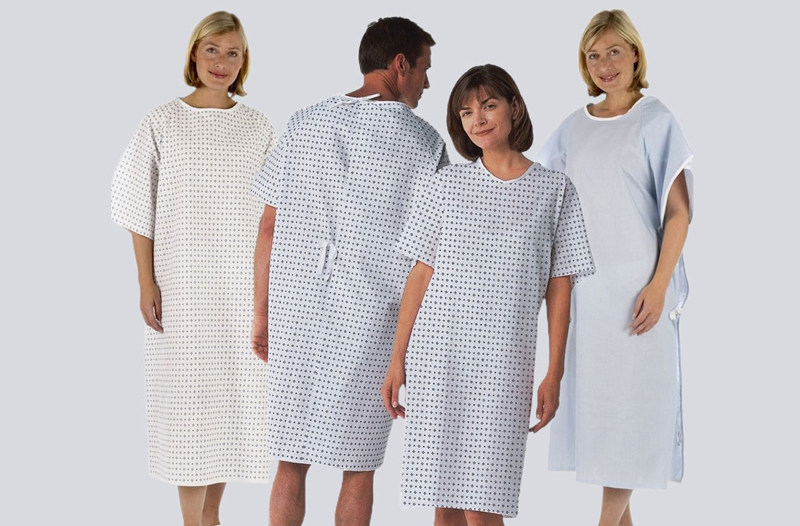1. Common fabric types and characteristics for patient gowns
The choice of fabric for hospital gowns directly affects patients' comfort and recovery experience. Here are several mainstream fabrics:
1. Pure cotton fabric

- Features: Natural fiber, breathable and moisture-absorbent (with a moisture absorption rate of about 8%-10%), soft and skin-friendly, suitable for sensitive skin.
- Disadvantages: prone to wrinkling, shrinkage (shrinkage rate after washing is about 3%-5%), poor durability.
- Applicable scenarios: General wards, short-term hospitalized patients.
2. Polyester-cotton blend (65% polyester + 35% cotton)
- Features: Combining the wear resistance of polyester with the comfort of cotton, it has good wrinkle resistance and a low shrinkage rate (about 1%-2%).
- Disadvantages: The breathability is slightly worse than that of pure cotton.
- Applicable scenarios: Situations involving long-term hospitalization or frequent washing.
3. Antimicrobial fabric (such as silver ion fiber)
- Features: Antimicrobial agents (such as silver ion content ≥0.5%) are added to inhibit bacterial growth, making it suitable for patients who have undergone surgery or have low immunity.
- Disadvantages: higher cost (20%-30% higher than ordinary fabrics).
- Applicable scenarios: high-risk infection areas such as ICU and burn unit.